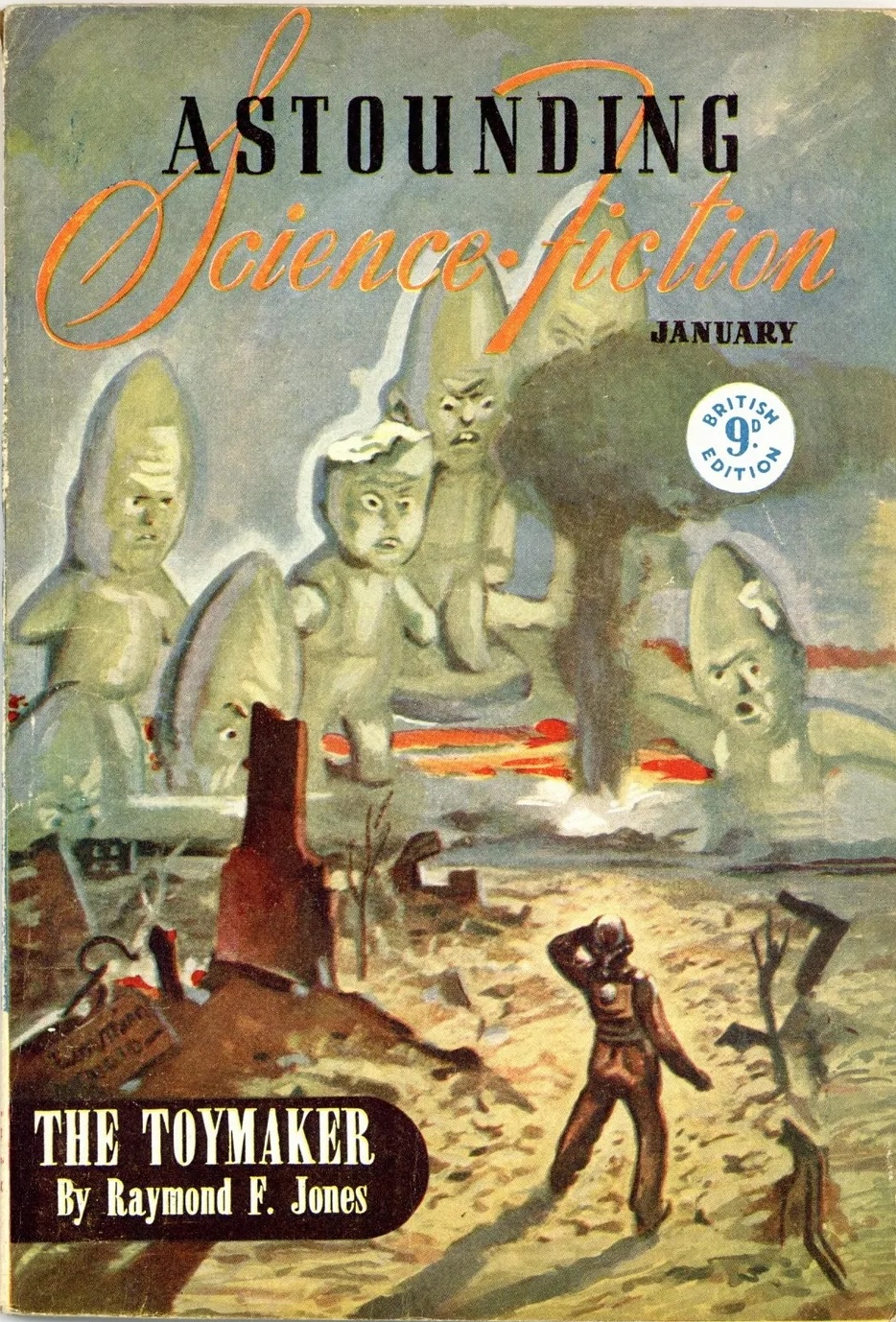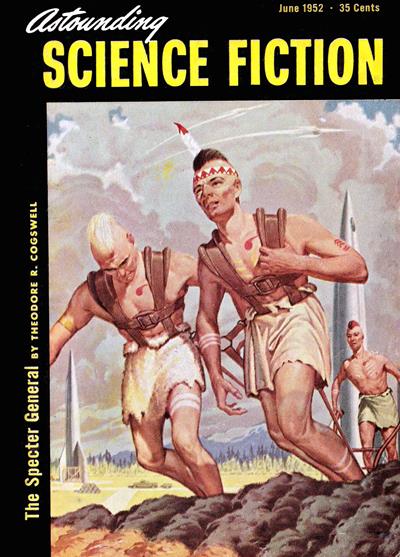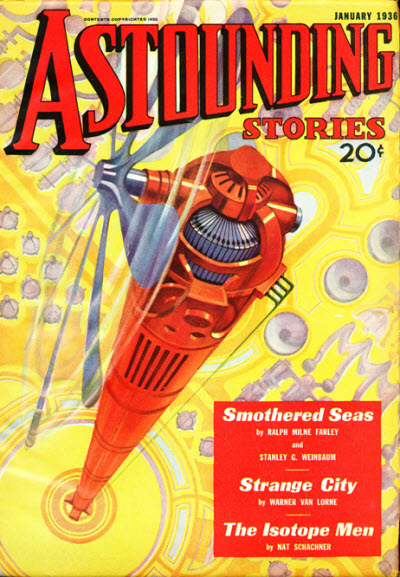
Part of Series
UK edition. Partial reprint of the September 1946 (US) issue plus one story from the June 1946 (US) issue. Contents: - The Toymaker • (1946) • novelette by Raymond F. Jones - Vintage Season • (1946) • novelette by Henry Kuttner and C. L. Moore [as by Lawrence O'Donnell] - Evidence • [Susan Calvin] • (1946) • novelette by Isaac Asimov - Paradise • [City] • (1946) • novelette by Clifford D. Simak. The UK edition, published by Atlas, appeared August 1939-August 1963. The contents were severely truncated during the 1940s, and the magazine did not appear regularly, adopting a variable bimonthly schedule. It became monthly from February 1952; from November 1953, when it changed from pulp to digest, it was practically a full reprint (four months behind in cover date) of the US edition, although some stories and departments were omitted.
Authors

"He was honored by fans with three Hugo awards and by colleagues with one Nebula award and was named the third Grand Master by the Science Fiction and Fantasy Writers of America (SFWA) in 1977." (Wikipedia) See http://en.wikipedia.org/wiki/Clifford...
Raymond Fisher Jones (November 15, 1915, Salt Lake City, Utah - January 24, 1994, Sandy, Salt Lake County, Utah) was an American science fiction author. He is best known for his 1952 novel, This Island Earth, which was adapted into the 1955 film This Island Earth and for the short story "The Children's Room", which was adapted for television as Episode Two of the ABC network show Tales of Tomorrow, first aired on February 29, 1952. Jones' career was at its peak during the 1940s, 1950s, and 1960s. His stories were published mainly in magazines such as Thrilling Wonder Stories, Astounding Stories, and Galaxy. His short story Noise Level is known as one of his best works. His short story "The Alien Machine", first published in the June, 1949 Thrilling Wonder Stories, was later expanded into the novel This Island Earth, along with two other short stories, "The Shroud of Secrecy", and "The Greater Conflict", known as The Peace Engineers Trilogy, featuring the character Cal Meacham. Jones also wrote the story upon which the episode "The Children's Room" was based for the television program Tales of Tomorrow in 1952.

Isaac Asimov was a Russian-born, American author, a professor of biochemistry, and a highly successful writer, best known for his works of science fiction and for his popular science books. Professor Asimov is generally considered one of the most prolific writers of all time, having written or edited more than 500 books and an estimated 90,000 letters and postcards. He has works published in nine of the ten major categories of the Dewey Decimal System (lacking only an entry in the 100s category of Philosophy). Asimov is widely considered a master of the science-fiction genre and, along with Robert A. Heinlein and Arthur C. Clarke, was considered one of the "Big Three" science-fiction writers during his lifetime. Asimov's most famous work is the Foundation Series; his other major series are the Galactic Empire series and the Robot series, both of which he later tied into the same fictional universe as the Foundation Series to create a unified "future history" for his stories much like those pioneered by Robert A. Heinlein and previously produced by Cordwainer Smith and Poul Anderson. He penned numerous short stories, among them "Nightfall", which in 1964 was voted by the Science Fiction Writers of America the best short science fiction story of all time, a title many still honor. He also wrote mysteries and fantasy, as well as a great amount of nonfiction. Asimov wrote the Lucky Starr series of juvenile science-fiction novels using the pen name Paul French. Most of Asimov's popularized science books explain scientific concepts in a historical way, going as far back as possible to a time when the science in question was at its simplest stage. He often provides nationalities, birth dates, and death dates for the scientists he mentions, as well as etymologies and pronunciation guides for technical terms. Examples include his Guide to Science, the three volume set Understanding Physics, and Asimov's Chronology of Science and Discovery. Asimov was a long-time member and Vice President of Mensa International, albeit reluctantly; he described some members of that organization as "brain-proud and aggressive about their IQs" He took more joy in being president of the American Humanist Association. The asteroid 5020 Asimov, the magazine Asimov's Science Fiction, a Brooklyn, NY elementary school, and two different Isaac Asimov Awards are named in his honor.


